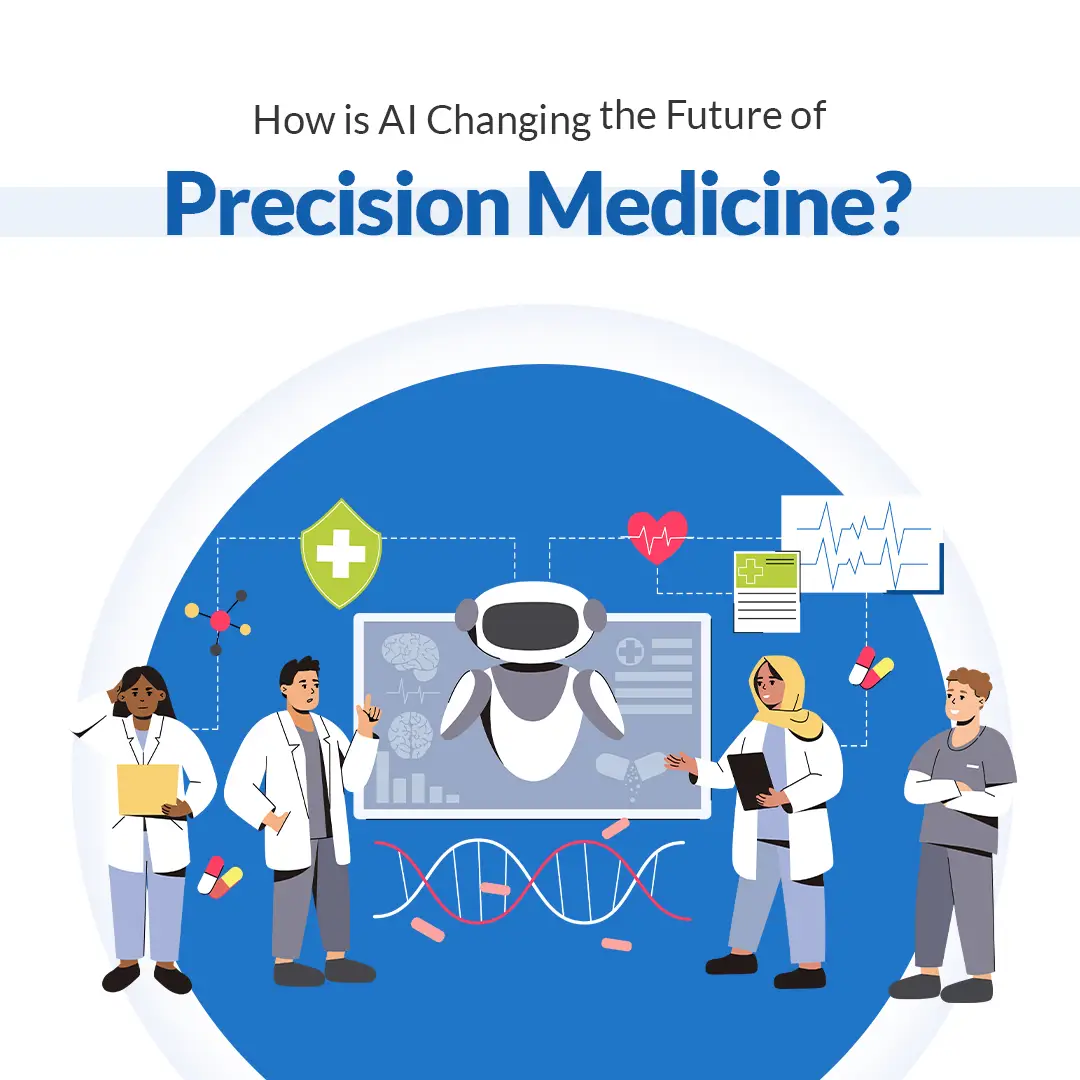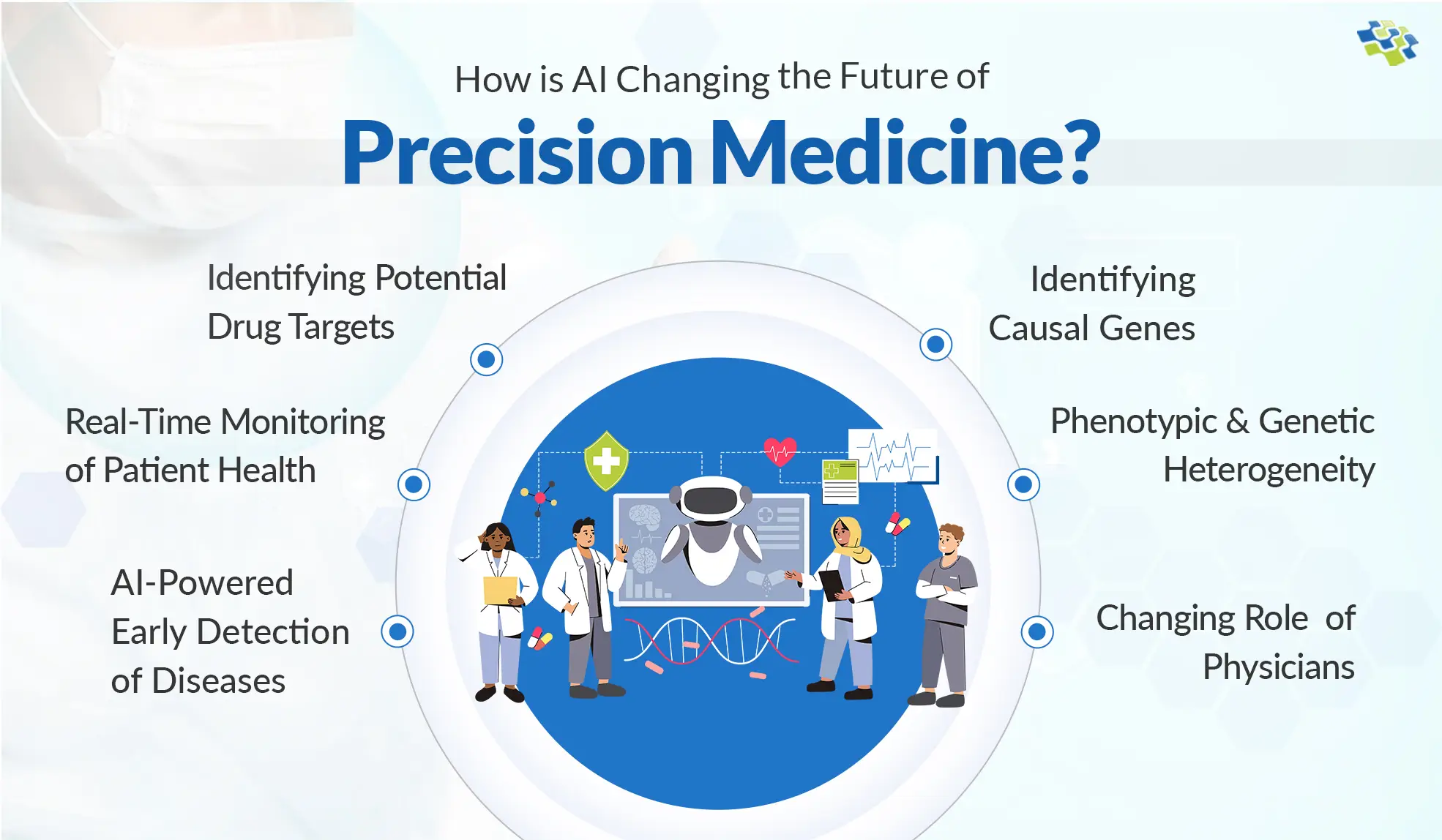The future of personalized medicine looks promising, with advancements in genomics and biotechnology leading the way. Tailored treatments and precision healthcare are becoming more accessible.
Personalized medicine, also known as precision medicine, customizes healthcare to the individual patient. It uses genetic, environmental, and lifestyle factors to create tailored treatment plans. Advances in genomics and biotechnology play crucial roles in this field. These innovations enable healthcare providers to predict disease susceptibility, improve diagnosis accuracy, and enhance treatment efficacy.
Personalized medicine reduces adverse drug reactions and promotes better patient outcomes. As technology evolves, personalized medicine is expected to become the standard, offering a more effective and efficient approach to healthcare. This shift promises significant improvements in patient care and the overall healthcare system.

Credit: nextgeninvent.com
Introduction To Personalized Medicine
Personalized medicine is revolutionizing healthcare. It tailors treatments to individual patients. This approach improves outcomes and reduces side effects. The future of personalized medicine looks promising and exciting.
Definition And Importance
Personalized medicine, also known as precision medicine, customizes healthcare. It uses a patient’s genetic profile to guide decisions. This ensures treatments are tailored to the individual.
Importance:
- Enhances treatment effectiveness
- Reduces adverse drug reactions
- Optimizes drug dosages
- Improves disease prevention
- Reduces healthcare costs
Historical Background
Personalized medicine has roots in ancient practices. Traditional healers personalized treatments based on observations. Modern personalized medicine began with the Human Genome Project.
Key Milestones:
- 1902: Archibald Garrod links genes to metabolism.
- 1953: Watson and Crick discover DNA structure.
- 2003: Human Genome Project completes mapping.
- 2015: Precision Medicine Initiative launches.
Today, personalized medicine integrates genomics, big data, and AI. It continues to evolve, promising a future where treatments are uniquely tailored to every individual.
Advancements In Genomics
The field of personalized medicine is evolving rapidly. One key area is genomics. Genomics focuses on the structure, function, and mapping of genomes. The advancements in genomics are transforming healthcare. These advancements help in understanding individual health better.
Human Genome Project
The Human Genome Project was a massive scientific endeavor. It mapped all the genes in the human genome. The project began in 1990 and finished in 2003. This achievement has opened new doors in medicine.
| Start Year | End Year | Key Achievement |
|---|---|---|
| 1990 | 2003 | Mapped the entire human genome |
Doctors can now identify genetic markers for diseases. This allows for earlier diagnosis and personalized treatment plans. Understanding our genes helps tailor treatments to individual needs.
Crispr Technology
CRISPR Technology is another exciting advancement. CRISPR stands for “Clustered Regularly Interspaced Short Palindromic Repeats”. This technology allows scientists to edit genes precisely.
- Correct genetic defects
- Treat and prevent diseases
- Improve crop resilience
CRISPR is like a pair of molecular scissors. It can cut DNA at specific locations. This makes it possible to remove or replace parts of the DNA sequence. The potential applications in medicine are vast.
Personalized medicine uses CRISPR to target genetic diseases. This means treatments can be tailored to each person’s genetic makeup. The future of healthcare looks promising with these advancements in genomics.
Role Of Artificial Intelligence
The role of Artificial Intelligence (AI) in personalized medicine is transformative. AI helps tailor treatments for individual patients. It processes large datasets quickly. This improves diagnosis and treatment plans. AI’s impact is profound in predictive analytics and drug discovery.
Predictive Analytics
Predictive analytics uses AI to foresee health issues. It analyzes patient data to predict diseases. Doctors can then take preventive actions. This reduces the risk of severe illnesses. AI identifies patterns in data. These patterns help in early diagnosis.
| Benefits | Examples |
|---|---|
| Early Detection | Identifying cancer at an early stage |
| Risk Assessment | Predicting the likelihood of heart disease |
| Personalized Treatment | Customizing medication based on genetic data |
Drug Discovery
AI revolutionizes drug discovery. It speeds up the process. AI analyzes chemical compounds quickly. This reduces the time to find new drugs. It also lowers costs. AI can predict how drugs will react in the body. This ensures safer medications.
- Faster identification of potential drugs
- Reduced costs in research and development
- Safer and more effective medications
AI helps in understanding complex biological processes. It identifies potential drug targets. This makes drug development more efficient. AI’s role in personalized medicine is growing. It promises a future with better healthcare outcomes.
Wearable Technology
The future of personalized medicine is exciting and full of possibilities. One major advancement is wearable technology. This technology is changing how we monitor health. Let’s explore how it works.
Health Monitoring Devices
Health monitoring devices are small gadgets you wear. They track your health data. Examples include fitness trackers and smartwatches. These devices check your heart rate, steps, and sleep.
Some advanced devices can even monitor blood pressure and glucose levels. This data helps doctors understand your health better. It also helps you make healthier choices.
| Device | Function |
|---|---|
| Fitness Tracker | Tracks steps, heart rate, and calories |
| Smartwatch | Tracks fitness, notifications, and sleep |
| Blood Pressure Monitor | Measures blood pressure |
Data Collection And Analysis
Wearable devices collect a lot of health data. This data is stored in apps. The apps analyze the data for patterns. They can alert you if something is wrong.
Doctors can use this data to personalize your treatment. They get real-time updates on your health. This helps them make better decisions faster.
Data analysis also helps in predicting health issues. If a problem is detected early, it can be treated quickly. This makes wearable technology very useful.
- Real-time health updates
- Personalized treatment plans
- Early detection of health issues
Tailored Treatment Plans
The future of personalized medicine is here, revolutionizing healthcare with tailored treatment plans. These plans are customized to fit each patient’s unique genetic profile, lifestyle, and environment. This approach ensures better outcomes, fewer side effects, and improved quality of life. Let’s delve into how tailored treatment plans are transforming specific areas of healthcare.
Cancer Treatment
Tailored treatment plans are making significant strides in cancer treatment. Each patient’s tumor has unique genetic mutations. Doctors now use these mutations to create customized therapies. This means better-targeted treatments and fewer side effects.
Here are some key benefits:
- Precision Medicine: Identifies specific genetic mutations in cancer cells.
- Targeted Therapies: Uses drugs that target these specific mutations.
- Reduced Side Effects: Spares healthy cells, reducing harm to the patient.
Chronic Disease Management
Managing chronic diseases like diabetes and hypertension is challenging. Tailored treatment plans offer a promising solution. These plans consider each patient’s genetics, lifestyle, and medical history.
Benefits include:
| Aspect | Benefit |
|---|---|
| Personalized Medications | Specific drugs tailored to individual needs. |
| Lifestyle Adjustments | Custom diet and exercise plans. |
| Continuous Monitoring | Wearable tech tracks health metrics. |
With these benefits, patients experience better disease management. Their quality of life improves significantly.
Ethical Considerations
The future of personalized medicine brings exciting possibilities. However, it raises significant ethical considerations. These considerations are crucial for a fair and just healthcare system.
Privacy Concerns
Personalized medicine relies heavily on patient data. This includes genetic information and health records. Protecting this data is essential. Unauthorized access can lead to misuse. Patients need to trust that their information is safe.
Here are some key privacy concerns:
- Data Security: How well is patient data protected?
- Consent: Are patients fully informed about data use?
- Data Sharing: Who can access and share this data?
Equitable Access
Access to personalized medicine should be fair. Everyone deserves equal access to advanced treatments. Disparities in access can lead to health inequality.
Consider the following factors affecting equitable access:
| Factor | Impact |
|---|---|
| Cost | High costs may limit access for some patients. |
| Location | Rural areas may lack advanced medical facilities. |
| Awareness | Patients must know about available treatments. |
Addressing these factors is key to ensuring fair access for all.
Challenges And Limitations
Personalized medicine holds great promise. But it faces many challenges and limitations. Understanding these obstacles helps us appreciate the complexities involved.
Cost And Accessibility
Personalized medicine often involves advanced technology. This makes it expensive. Many treatments are not affordable for everyone. This creates a gap in healthcare access.
Healthcare systems may struggle with costs. This can limit availability. Insurance coverage for personalized treatments is uncertain. Many people may not get the care they need.
Below is a table showing the cost factors:
| Factor | Impact on Cost |
|---|---|
| Advanced Technology | High |
| Research and Development | Very High |
| Insurance Coverage | Varies |
Technological Barriers
Technological barriers also pose a challenge. Many treatments require complex equipment. Not all hospitals have these resources. This limits where patients can receive care.
Data privacy is a big concern. Personalized medicine relies on genetic data. Protecting this data is crucial. Many fear their information could be misused.
Here are some key technological barriers:
- Complex Equipment
- Data Privacy Concerns
- Specialized Training
Overcoming these barriers is essential for the future of healthcare.

Credit: proventainternational.com
Future Prospects
Personalized medicine is transforming healthcare. It offers treatments tailored to individual needs. The future promises even more exciting advancements. These advancements will revolutionize how we treat diseases and improve patient outcomes.
Innovative Therapies
Innovative therapies in personalized medicine are on the rise. These therapies include gene editing, immunotherapy, and regenerative medicine. Gene editing allows doctors to fix genetic mutations. CRISPR technology is a popular tool for gene editing. It makes precise changes to DNA.
Immunotherapy boosts the body’s immune system to fight cancer. It has shown promising results in treating various cancers. Regenerative medicine focuses on repairing damaged tissues and organs. Stem cell therapy is a key part of this approach. These therapies have the potential to cure previously untreatable diseases.
Global Impact
Personalized medicine will have a global impact. It will make healthcare more effective and accessible. Developing countries will benefit from these advancements. They can use personalized treatments to tackle local health issues. This will reduce healthcare costs and improve patient care.
Personalized medicine will also promote health equity. It ensures everyone receives the best possible care. The global healthcare system will become more efficient. Collaboration between countries will speed up medical research. This will lead to faster development of new treatments.
In summary, personalized medicine holds great promise for the future. Innovative therapies and global impact will transform healthcare. Patients worldwide will benefit from these advancements. The future of personalized medicine is bright.

Credit: graduate.northeastern.edu
Conclusion
Personalized medicine is revolutionizing healthcare with tailored treatments. This approach promises better outcomes and fewer side effects. As technology advances, personalized care will become more accessible. Embracing these innovations can lead to a healthier future for all. Stay informed and be a part of this exciting medical evolution.

